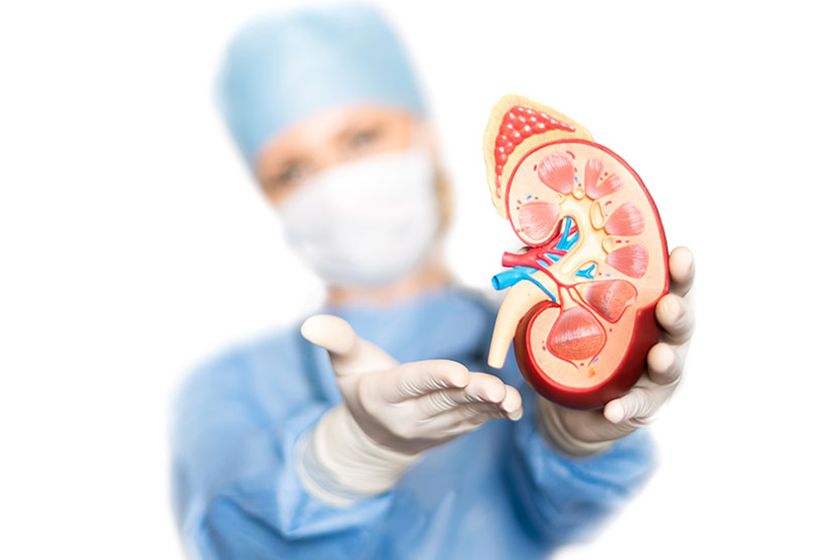Innovations in Renal Transplantation: What the Future Holds
Renal transplantation, also known as kidney transplantation, is a life-saving procedure that has provided hope and improved the quality of life for countless individuals with end-stage renal disease. In recent years, significant innovations and advancements in the field of renal transplantation have paved the way for more effective treatments and increased access to care. Noida, a thriving healthcare hub, is fortunate to have leading specialists like Dr. Dushyant Nadar, renowned as the best urologist in Noida and a skilled renal transplant specialist. This article explores the exciting innovations in renal transplantation and the future possibilities in the field.
The Growing Need for Renal Transplants
End-stage renal disease (ESRD) is a serious medical condition that occurs when the kidneys lose their ability to function adequately. Dialysis can help manage ESRD to some extent, but it is not a long-term solution. The primary treatment for ESRD is a renal transplant, where a healthy kidney is transplanted from a living or deceased donor into the recipient’s body.
The demand for renal transplants far exceeds the availability of suitable organs, resulting in long waiting lists and significant challenges for patients. Innovations in renal transplantation hold the promise of improving the accessibility and outcomes of these life-saving procedures.
Advancements in Organ Preservation
One of the critical areas of innovation in renal transplantation is the development of more effective methods for organ preservation. The successful transplantation of a kidney depends on how well the organ is preserved before it is transplanted. Traditional organ preservation techniques involve cold storage, but researchers are working on improving these methods.
- Normothermic Machine Perfusion: This cutting-edge technology involves maintaining the kidney at body temperature while perfusing it with oxygen and nutrients. This allows for the assessment of the organ’s viability and function before transplantation.
- Hypothermic Machine Perfusion: This technique involves cooling the kidney to a specific temperature, which slows down the organ’s metabolism, reducing the risk of injury during preservation.
These innovations in organ preservation have the potential to increase the number of viable donor kidneys, ultimately reducing waiting times for patients in need of renal transplants.
Immunosuppressive Medications
Immunosuppressive medications are crucial for preventing the recipient’s immune system from rejecting the transplanted kidney. Innovations in this area aim to enhance the effectiveness of these drugs while minimizing side effects.
- Personalized Immunosuppression: Advances in genomics and precision medicine are paving the way for personalized immunosuppressive regimens. Tailoring the treatment to an individual’s genetics and immune profile can improve outcomes and reduce the risk of rejection.
- Targeted Therapies: Researchers are exploring targeted immunosuppressive drugs that specifically inhibit the immune response without causing the generalized immune suppression associated with traditional medications.
- Biological Agents: The development of biological agents that modulate the immune response and promote organ tolerance is a promising area of research. These agents may help reduce the need for long-term immunosuppressive medications.
Xenotransplantation: A Game-Changing Possibility
Xenotransplantation, the transplantation of organs from animals into humans, has been a topic of fascination and intense research in recent years. While it has not yet become a routine practice, it holds immense potential to address the shortage of donor organs.
- Pig-to-Human Transplants: Pigs, due to their physiological similarities to humans, are being explored as a potential source of donor organs. Researchers are working to overcome immunological barriers and the risk of transmitting zoonotic diseases to make this groundbreaking procedure a reality.
- Challenges and Ethical Considerations: Xenotransplantation presents numerous challenges, including immune compatibility and ethical concerns related to animal welfare and disease transmission. Research in this field continues to address these issues.
Artificial and Bioengineered Organs
The development of artificial and bioengineered organs is another exciting avenue in renal transplantation. The scarcity of donor organs has driven researchers to explore the creation of lab-grown kidneys.
- 3D-Printed Kidneys: 3D printing technology allows for the creation of custom-made organs. Researchers are making progress in developing 3D-printed kidneys that mimic the function of natural organs.
- Stem Cell-Derived Organs: Stem cells have the potential to differentiate into kidney cells and generate bioengineered kidneys. This research holds promise for creating a limitless supply of functional kidneys.
Challenges and Considerations
While these innovations in renal transplantation offer exciting possibilities, they also come with challenges and considerations. Ethical, legal, and regulatory aspects must be carefully addressed. Additionally, the safety and long-term outcomes of these novel approaches need to be thoroughly evaluated before they become standard practice.
Renal Transplant Specialist in Noida: Dr. Dushyant Nadar
In Noida, patients have access to top-tier healthcare professionals, including Dr. Dushyant Nadar, who is not only recognized as the best renal transplant specialist in Noida. Dr. Dushyant Nadar has extensive experience in performing renal transplants and is at the forefront of adopting innovative techniques and treatments in the field.
Dr. Dushyant Nadar’s commitment to patient-centered care and his proficiency in the latest advancements in renal transplantation make him a valuable resource for those seeking life-changing kidney transplants in Noida.
Wrapping Up…
The field of renal transplantation is evolving rapidly, with numerous innovations that hold the promise of increasing access to life-saving kidney transplants. These innovations encompass organ preservation techniques, immunosuppressive medications, xenotransplantation, and bioengineered organs. While these advancements offer hope and possibilities, it is essential to approach them with caution, ensuring that safety, ethics, and regulatory considerations are prioritized.
Noida, with its growing healthcare infrastructure and specialists like Dr. Dushyant Nadar, is well-positioned to embrace these innovations in renal transplantation. As the field continues to advance, patients with end-stage renal disease can look forward to a future with improved access to life-saving kidney transplants and enhanced outcomes.


Comments are closed